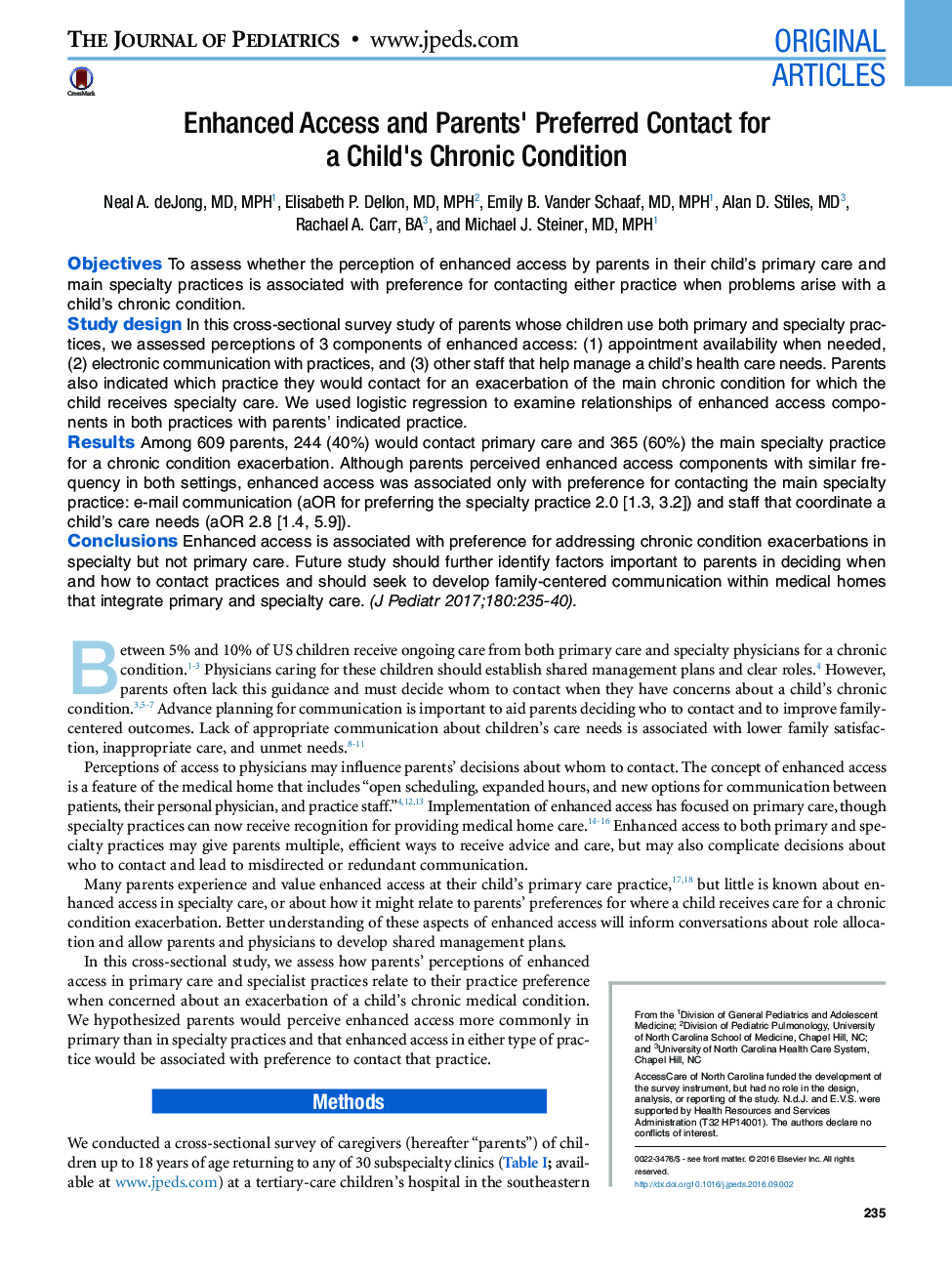| Article ID | Journal | Published Year | Pages | File Type |
|---|---|---|---|---|
| 5719318 | The Journal of Pediatrics | 2017 | 7 Pages |
ObjectivesTo assess whether the perception of enhanced access by parents in their child's primary care and main specialty practices is associated with preference for contacting either practice when problems arise with a child's chronic condition.Study designIn this cross-sectional survey study of parents whose children use both primary and specialty practices, we assessed perceptions of 3 components of enhanced access: (1) appointment availability when needed, (2) electronic communication with practices, and (3) other staff that help manage a child's health care needs. Parents also indicated which practice they would contact for an exacerbation of the main chronic condition for which the child receives specialty care. We used logistic regression to examine relationships of enhanced access components in both practices with parents' indicated practice.ResultsAmong 609 parents, 244 (40%) would contact primary care and 365 (60%) the main specialty practice for a chronic condition exacerbation. Although parents perceived enhanced access components with similar frequency in both settings, enhanced access was associated only with preference for contacting the main specialty practice: e-mail communication (aOR for preferring the specialty practice 2.0 [1.3, 3.2]) and staff that coordinate a child's care needs (aOR 2.8 [1.4, 5.9]).ConclusionsEnhanced access is associated with preference for addressing chronic condition exacerbations in specialty but not primary care. Future study should further identify factors important to parents in deciding when and how to contact practices and should seek to develop family-centered communication within medical homes that integrate primary and specialty care.
